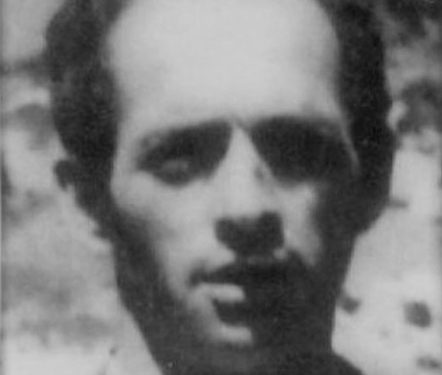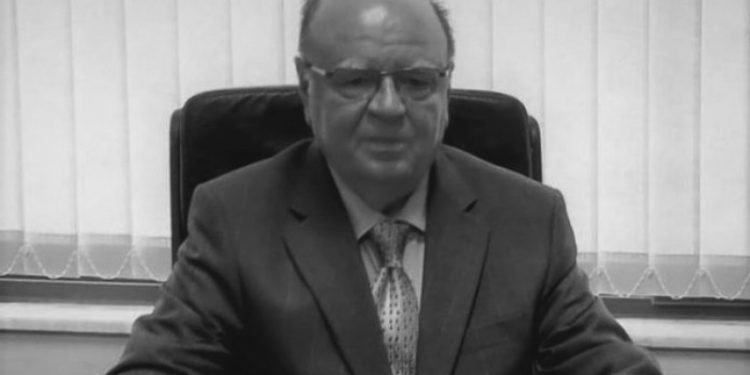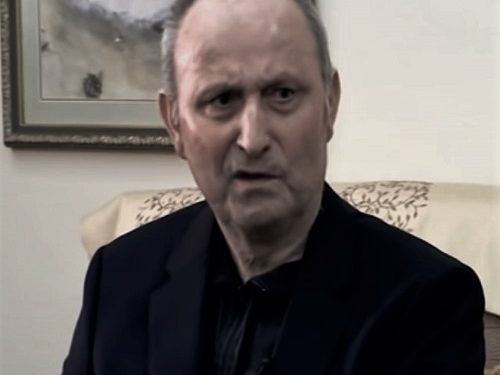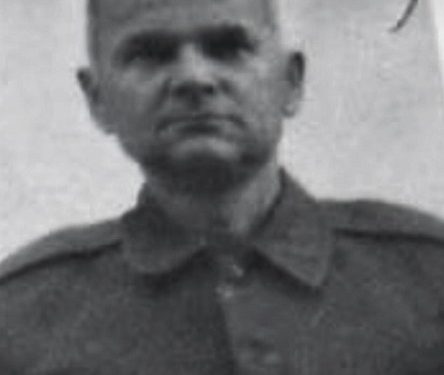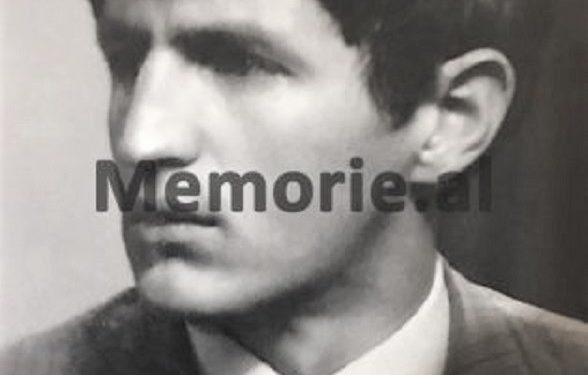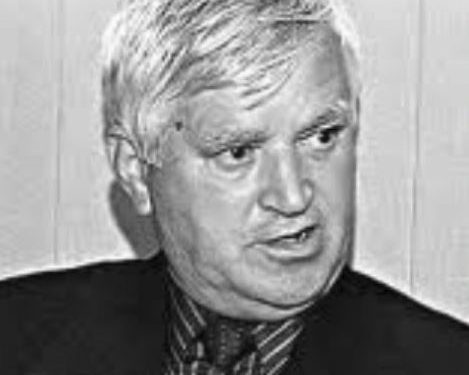By Bedri Blloshmi
Memorie.al / Rexhep Uk Goçi was born in 1937, in the village of Çerem, Tropoja district. Rexhepi was married to Bora Goçaj and they had 7 children: Perlat (the eldest), Esat, Luani and sisters; Sadete, Valdete, Valbona and Servete. Rexhepi had primary education and worked in the Geology company in Tropoja. On 14. 2. 1975, he was arrested by the State Security, being accused; “for agitation and propaganda against the people’s power”, provided by Article 73/1 KP. On 5/30/1975, the Court of Tropoja sentenced him to 10 years of imprisonment. Then, they send him to the Spaç camp in Mirdita to serve his sentence.
In 1982, in the month of November, the communist government made an amnesty for political prisoners. In Spaçi prison camp, 373 or 375 convicts benefited, who were released on November 15, 1982. The next day, November 16, Rexhep Goçi would die at the entrance of gallery 15/1, from the “Kalashnikov”of the guard soldier.
It was the command’s “rule” that after killing and burying, for the case in question, the burial site was in Shpal of Mirdita. After 1990, Rexhepi’s family members became interested and discovered the burial site, took him and buried him in the place of his birth, where he rests eternally next to his ancestors.
Memory
Around the 70s, in the dome of crime in Tirana, the communist dictator Enver Hoxha was continuing the next crimes. In the prison of Spaçi, all kinds of information came, maybe for us to have as food, of hope.
In 1981, on the night of the seventeenth, dawning on December 18, a joyful news for us was given on television: “From a nervous breakdown, the prime minister of Albania, Comrade Mehmet Shehu, killed himself.” All the prisoners, including me, were very happy.
We talked to all the convicts, two or three, that communism was leading to the end, eating its own offspring. The communist government announced an amnesty for political prisoners and on December 15, 1982, over 370 convicts were released from Spaçi prison.
Based on the calculations, a convict from Tropoja district, Rexhep Uk Goçi, did not benefit from this amnesty, because he had eleven more days, according to the calculation of the command’s cartelist.
Those who were released, were in different brigades from the five areas of the mine, where under the weight of the whip and other tortures, such as; chained to the concrete post and many times with their hands tied behind their backs, they also tied a wagon wheel, which weighed only on their tied hands.
This wagon wheel did not touch the ground. An indisputable problem was the second area, where pyrite ore was extracted, under a temperature of 40° – 45° heat. They completed the brigade, as much as they needed for the pyrite wagons.
At that time, I was working in the fifth area and I was transferred to the second area, together with some armorers (the gallery maintenance workers were called armorers). So among several others, there was Rexhep Goçi. At the time we were about to enter the gallery, and precisely at gallery 15/1, the old woman called.
Rexhepi would work in this gallery, as I said above, armorer and takes a tool, which was called “carriage-body”, to take some concrete bodies, not far from the mouth of gallery 15/1.
To the right of this gallery, almost 200-300 meters away, was the enclosure and a checkpoint outside the three barbed-wire fences, which was guarded day and night by a soldier with a machine gun in hand. I must clarify one thing for the reader who has not heard of what I am confessing.
If the soldier killed an “enemy” (political prisoner), the first reward was fifteen days of leave and definitely a decoration, and when he would finish the army, the command would put him in police custody, even in the camp.
Inside the space from the enclosures 20-25 meters away from the gallery, several signs in the form of triangles (made of iron) were placed, which the condemned should not pass or approach. Rexhepi, a few meters away from these signs, was loading the concrete bodies, to enter the gallery.
At this time, the roar of the machine gun was heard, we were all stunned with fear. As soon as the deadly noise was heard, the policeman came out and called to the soldier: “What are you doing, stop the fire”?!
Meanwhile, Rexhepi, fell on one side, with the concrete body in his lap and with a voice that was almost dying, spoke: “What did you do to me, you took me as a soldier, you killed me, you left my children on the streets, I have a cart full of children. Oh God, why, why like this with me, it’s good that you didn’t free me, but why did you kill me…?! Ah, the children…were left orphans”!
As the blood slowly reddened the pyrite-stained clothes, he hung his head to one side and felt no more. The policeman was standing next to the corpse, shouting at us: “Get in, get in”.
For eight hours in a row, we sat in the corner of the gallery without speaking a word to each other, lit by the carbide lamp, which emitted a yellow flame, moving from left to right. After a few hours, the prosecutor’s office of Rrëshen arrived, to complete the formalities and allow the command to do the next burial, on the edge of a stream called; Display.
Where his friends were waiting for him, killed and buried before. While the children grew up orphans, under the presence of pain and hunger. They grew up and got married after 1990, Perlati and the other six children, together with their children (grandchildren of the late Rexhep), set off like that with their heads aside, silently towards the deserted valley and the peaks eroded by erosion, of Spaç.
Towards this hell that kept hidden in the belly of the burning earth, their father. However, they expected him to return alive, older and grayer, crushed by life and the fate that punished him so severely. However, the few bones that remained undigested were traveling to rest in their homeland. Rest in peace, my friend of troubles and sufferings!
Archival document with the court’s decision, for the punishment of Rexhep Goçi
“IN THE NAME OF THE PEOPLE”
Tropoja District Court,
made of:
Shefqet Muçi Chairman,
Imer Sokoli member,
Kadire Ismailaj member,
with secretary Vera Doçin
and the participation of the prosecutor, Kristaq Ngjela, examined the criminal case No. 69, which belongs to the defendants, in an open court session on May 29 and 30, 1975, in Ңerem;
1- REXHEP GOҪI, the son of Uka and Fatima, born in 1937, born and living in Ңerem, of middle peasant social origin, and working class, with primary education, no immunity, no party, no previous convictions, arrested on 14.2.1975.
The court, after completing the judicial investigation, after listening to the prosecutor who requested the declaration of the defendants guilty, according to the charge, and that the defendant Rexhep Goçi be sentenced to 10 years of imprisonment.
While the defendant Çelë Goçi, with 7 years of deprivation of liberty, after hearing the defense and last word of the defendants, in which they requested; the defendant Rexhep, to be punished according to the law, and the defendant, the justice.
Note:
The defendant Rexhep Goçi, since his youth, has nurtured hatred for popular power, as he comes from a family with a bad political attitude. His father has been convicted of a crime against our state of people’s democracy.
This hatred, the defendant Rexhep, also fed and kept alive his cousin, the defendant Çelë Goçi. Predisposed to oppose the great victories of the socialist revolution in the People’s Republic of Albania, the Marxist-Leninist line of our Party.
THE DISTRICT COURT RULES
-SUMMARY DECISION-
With decision No. 65 dated 30.5.1975 of the Tropoja district court, Rexhep Ukë Goçi, was sentenced to 10-10 years of imprisonment for the crime of agitation and propaganda against the popular government.
Condolence telegram of two co-sufferers from Spaç prison, sent to the family of Rexhep Goç
T H E L E G R A M
With tears in our eyes, with sadness in our hearts, we participate in the untimely death of our Rexhep of Aries. Be like men, love and help one another.
Yours for life
Sadri Sokoli Jetulla Gashi
This is the telegram of condolence, which three days later, the two prison friends sent to the family of Rexhep Goçi. Two years later, one of these two prison friends, Sadri Sokoli, would suffer the same fate, in the Qafë-Bar Revolt, on May 22, 1984. Memorie.al




